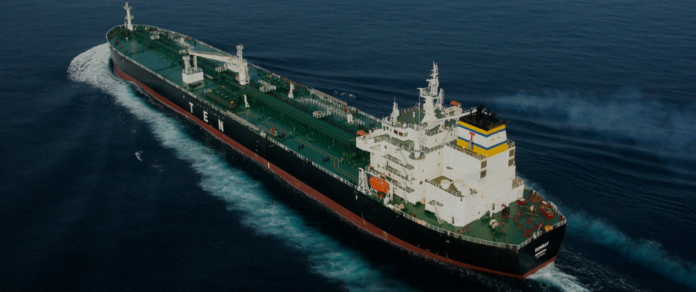Tsakos Energy Navigation’s decarbonization strategy and plans are progressing steadily, with a clear focus on reducing emissions, improving energy efficiency and integrating sustainable practices across all of the company’s operations.
As the company’s founder and CEO, Dr. Nikos Tsakos, pointed out in his message to the company’s 2023 ESG report, “our customers currently prefer liquefied natural gas, while we also expect both LNG and biofuels to play a significant role as the industry transitions from lower-carbon fossil fuels to zero-carbon alternatives.”
Fleet
In this context, TEN has built and delivered four LNG-powered Aframax vessels and acquired two additional LNG-powered Aframax vessels, all secured through long-term charters from major energy companies.
TEN has a fleet of 74 vessels, of which 12 are under construction, with a total carrying capacity of 8.9 million dwt.
“We are also committed to improving the efficiency of our existing fleet, leveraging a balanced mix of emerging technologies and best practices. These include energy-saving devices, route and speed optimization, hull cleaning and anti-pollution measures, as well as the integration of biofuels in our operations, Dr. Tsakos underlined.
Despite the increasing challenges, 2023 was another remarkable year for TEN, marked by strategic actions that underline the company’s commitment to environmental responsibility and efficiency.
“We continued to advance our strategic fleet renewal program, divesting older vessels and reinvesting the proceeds in new vessels and modern tankers with superior environmental performance,” Dr. Tsakos stated and added:
“Since January 1, 2023, we have sold 13 vessels with a total capacity of 1 million dwt and an average age of 17.5 years, while we have entered into contracts and acquired 21 vessels with a total capacity of 2.3 million dwt and an average age of one year.
These new acquisitions significantly enhance the profitability of our fleet and further consolidate TEN’s leadership in dual-fuel vessels, which are energy-efficient and environmentally friendly.”
A key priority for TEN is “ensuring the safety, security, inclusion and well-being of the company’s people. Equally important is upgrading the skills of our workforce through tailored and specialized training for the smooth transition to decarbonization,” he stressed.














